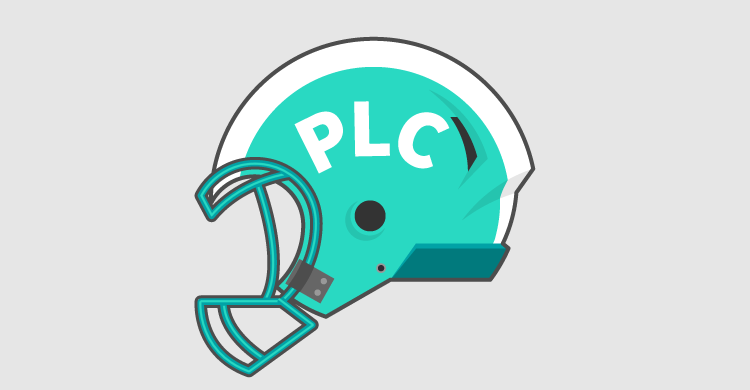As a principal I used to be frustrated by how indifferent many of my teachers acted toward professional development activities. After all, I had spent a great deal of time putting the presentations and activities together. I had made sure they were aligned with my building goals. And I always had engaging stories and great jokes. So why weren’t my teachers as excited as I was? Why wasn’t I seeing the impact in classrooms?
The problem was that professional development in our building was all about me and what I thought was important to our students and staff. Teachers were involved in the activities out of compliance, but they were not engaged in the learning. Just like in a classroom, professional learning has to be something we do rather than something that is done to us.
One of my favorite books, Drive by Daniel Pink, refers to three areas that need to be addressed in order to create a climate of engaged, intrinsic learning. The learners need to have autonomy to choose the path for their learning, a sense of mastery that motivates them to succeed, and a purpose or context that helps them see the bigger picture and how they are making a contribution.
I applied these concepts to how I approached our professional learning experiences. The first thing I did was get out of the way. I asked teachers who were interested in leadership roles and had a heart for learning to create a professional learning team. We created an open committee that was empowered to create the framework for our learning each year. In the beginning, it was hard for them to make decisions without me. It showed me how much control I had held over the program. Fast-forward to the present, and now the team presents me with a whole year calendar with multiple opportunities.
Each month we have three specific activities. We start with short learning opportunities focused on a specific topic or strategy. This happens during a time we call Lunchbytes. They are run by staff experts and might include technology tools, classroom management strategies, and best practice instructional strategies. Since it is during lunchtime, we provide lunch. Nothing creates an effective and engaging learning experience like free food! These lunches are donated by local businesses and our parent organization.
The second event is a day of peer classroom walkthroughs. We have a large building, so these take some preplanning. Teachers volunteer to open their classroom and allow others to come and observe during their plan time. Our instructional coach sets the tone and focus for the walkthrough and brings the group back together at the end for a quick debriefing. Teachers are also expected to send a note to each teacher they observed to give feedback. There’s nothing more unnerving than to have visitors in your class and wonder what they thought.
Our culminating activity each month is our faculty meeting. We meet for one hour after school. We have eradicated all announcements and housekeeping tasks that can be handled through email. The whole time is concentrated on interacting with a focus on how they have incorporated the skills they have learned into their classroom to impact student achievement. This might include bringing student exemplars and doing a gallery walk. We have done resource share fairs, but my all-time favorite has been our technology speed dating. Teachers come to the meeting with a tech tool they have had success with in class. They get one minute to explain or show it to a partner before they rotate. This gives our teachers a grab bag of tried-and-true tools that have been vetted by their colleagues.
In addition to having formal learning events, our team wanted to create a culture of ongoing, job-embedded learning and sharing. We do this through the use of a Google Community. Teachers share articles, resources, and invitations to come and see strategies in their classroom. The best part about our community page is that it crosses content lines rather than being hoarded by a single department.
All of these activities supplement our best learning, which continues to be our weekly collaborative teams. These teams focus on grade-level, content-specific instructional strategies. This will always be our cornerstone as a PLC school. Members of these teams come together to share and seek out each other’s best practices based on evidence from student learning. They can effectively take what they have learned from our professional development activities and figure out how it will best work in their content area.
If there is one thing I have learned in my PLC journey over the past decade, it’s that I never want my school community to be limited by my skills and knowledge. As leaders we are obligated to provide our students with the full impact of our staff’s collective knowledge and talents. We must create an expectation for engaging all teachers in a culture of active professional learning and sharing. I hope the ideas I have shared spark even better ideas for creating a focused intentional program that doesn’t leave talent development to chance. I encourage you to share your ideas and thoughts in the comments below.
[author_bio id=”356″]







Thank you Scott for sharing your best practices. Would love to hear more!
Please write a book about your philosophy, strategies and methods so more leaders can learn from your wonderful experiences and results. Just reading this blog ignites my hope these practices will spread rapidly across the country.
Reminds me of 2 leadership quotes I heard in numerous trainings that make a difference for me: The best leaders are those you need less of but want more of. Great leaders are those whose teams say, “We made it happen!”. As a long-time Special Ed. Dept. Chair, SLP & PLC Leader I’ve learned these make a difference.
Congratulations to you & your staff! Thank you for sharing such meaningful and needed processes.
Judith Ludwig-Keller